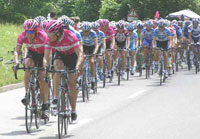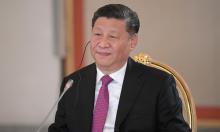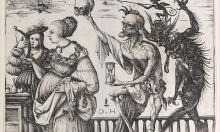U.S. companies not as quick to back out of Tour de France sponsorships
Despite extreme doping scandals and waning interest at home in the Tour de France, U.S. sponsors are more hesitant than their European counterparts to drop ties to the world's largest cycling event.

Sponsorship is key to the Tour de France - a symbiotic relationship exists between the teams and cyclists desperate for funding and the corporations eager for exposure. Few images of the Tour are absent a company name emblazoned on a bike, jersey, helmet or team van.
But the race hit a doping high Wednesday when race leader Michael Rasmussen was removed after winning the day's stage, at the order of the Dutch team sponsor Rabobank. The Cofidis squad also confirmed its rider Cristian Moreni of Italy had failed a doping test, prompting the withdrawal of the entire Cofidis squad.
German rider Patrik Sinkewitz, riding for T-Mobile, crashed into a spectator and then was revealed to have failed a drug test in training before the race began. Alexandre Vinokourov was sent home earlier this week after testing positive for a banned blood transfusion, and his Astana team was then pulled out of the race.
European sponsors were quicker to distance themselves from the tainted event than those in the United States.
German truck company Man has backed out as a sponsor, and two German television stations had already dropped their coverage of the Tour. Automaker Audi AG and athletic apparel company Adidas said they are reconsidering their sponsorship, as have several others.
In Switzerland, bicycle manufacturer BMC said it is reconsidering its partnership with team Astana after its star rider was ejected. One Swiss paper went so far as to mourn the end of cycling in a mock death notice due to doping scandals.
"We are worried about the integrity of the sport," said Eric Bjorling, marketing coordinator for Wisconsin-based Trek Bicycle Corp.
But Trek said it will continue its sponsorship of the Discovery Channel team, which it helps outfit. Trek said it is confident the Discovery team is clean.
Nike Inc., based in Oregon, and Discovery Communications Inc. said they are standing by the team as well.
Discovery's three-year sponsorship deal ends at the end of this season, and the Silver Spring, Md.-based company has cited business reasons.
There are few U.S. cyclists in the tour, and viewership in the United States has dropped significantly in the post-Lance Armstrong days. But there are numerous U.S. sponsors that count on international exposure from the race.
"This is like the Super Bowl," said Mike Sinyard, founder and president of Specialized, which provides gear to more than half the cyclists in the race. "In Europe it's on live all day long and everyone is watching it."
Specialized, which is based in California, sponsors two teams. The company has a zero-tolerance drug use policy for its athletes.
"I really applaud cycling for taking such a strong position," Sinyard said. "Some of the other sports look the other way."
Computer Sciences Corp., a California company that sponsors Team CSC, said it also will continue its involvement in cycling.
The company was forced to take a look at its ties in May when Bjarne Riis, who was to head its team, confessed to using performance enhancer EPO during his 1996 Tour win. He decided not to join the team for the start of this year's race.
"It's disheartening when you make a great bike, have great riders on it and someone messes up," said Peter Donato, from Canadian bike maker Cervelo.
Donato said there is probably not a team or sponsor that has not been touched in some way by the doping scandals.
"We don't think pulling out is the answer to this," Donato said. "Where we go from here, I don't know to be honest."
Subscribe to Pravda.Ru Telegram channel, Facebook, RSS!





